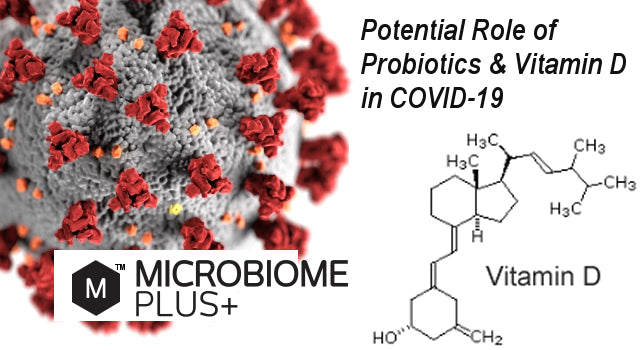No research supports the use of any supplement to treat or prevent COVID-19. Protect yourself by washing your hands frequently, avoiding crowds and close contact with people who are sick, and following the latest WHO advice for the public.
While authorities scramble to create a vaccine, the COVID-19 pandemic continues to impact communities around the globe. With symptoms like fever, dry cough, fatigue, aches and pains, headache, reduced immunity, difficulty breathing, chest pain, and potential death, ways to lessen the impact of the disease, to mitigate its effects, are required.
Experts like Colin Pouton, Professor of Pharmaceutical Biology, have noted the timing of an effective vaccine remains “quite uncertain”. There is still no inoculation against the coronavirus that causes the common cold. Developing one for the strain that causes COVID-19 will also be difficult. Development of an effective vaccine remains a work in progress.
On the other hand, preliminary evidence suggests that infection rates may be linked to a particular vitamin deficiency.
An analysis published in BMJ Nutrition, Prevention and Health found that for each degree above a latitude of 28° north, that is, most of Northern America, there is an estimated 4.9% increase in COVID-19 death rate. Could this be due to hampered production of vitamin D due to inadequate exposure to sunlight?
The authors of the study noted, “Evidence linking vitamin D deficiency with COVID-19 severity is circumstantial but growing.” However, they pointed out that more direct evidence is lacking since their study focused on correlation only. In other words, studies have yet to investigate whether low vitamin D levels can actually cause more COVID-19 deaths.
Nonetheless, vitamin D plays a role in both adaptive and innate immune system function. In fact, vitamin D receptors are found on virtually all immune cells. Vitamin D deficiency has been linked to infection, including an increased risk for respiratory tract infections. Research also shows that raising vitamin D levels protects against acute respiratory tract infection.
Could you have a vitamin D deficiency?
The first question to ask is: are you at risk of a vitamin D deficiency? If you are American, there is an almost one in two chance you are. The study Prevalence and Correlates of Vitamin D Deficiency in US found the average rate of vitamin D deficiency in US adults was 41.6%, “With the highest rate seen in blacks (82.1%), followed by Hispanics (69.2%).”
Vitamin D deficiency is more common in the elderly, people with darker skin, in indoor workers and those who habitually wear long sleeved clothing, in obesity, in many chronic illnesses including osteoporosis, kidney and liver disease, hyperparathyroidism, granulomatous diseases, and in malabsorption illnesses like Crohn’s disease.
Possible signs and symptoms include widespread bone and muscle pain, symmetrical low back pain in women, depression, fatigue, poor wound healing, and reduced immune function. If you experience any symptoms, be sure to see a doctor to get proper diagnosis and treatment.
3 ways to protect against vitamin D deficiency
Avoiding vitamin D deficiency is important for proper immune function and to fight infection. Some scientists consider that it may also help slow the spread of COVID-19, but more research is needed.
There are three ways to increase the amount of vitamin D in your body: adequate sun exposure, supplementation with vitamin D, and a specific probiotic. Most people get enough vitamin D from the sun. You may need to consider supplements only if you are at risk of deficiency due to inadequate sun exposure.
Adequate sun exposure. Sufficient sun increases the amount of vitamin D that is produced by the body. In the summer months, several minutes outdoors with exposed skin may be enough. In the winter months, some people living in the Northern Hemisphere may need to consider supplementation. As the degrees of latitude increase, the capacity to produce vitamin D reduces. On the other hand, overexposure is a known cause of skin cancer.
Supplemental vitamin D. Supplemental vitamin D is a possible way to increase blood levels of this crucial nutrient, in most people. Consulting with an appropriately trained health professional is advised to assess current levels, decide on an appropriate dose, and to monitor progress.
Probiotic L. Reuteri supplementation. The gut microbiota play important roles in healthy immune function, protecting against respiratory infection and aiding nutrient absorption. Additionally, certain probiotics that live in the gut are likely important for maintaining vitamin D levels.
A groundbreaking clinical study published in The Journal of Clinical Endocrinology and Metabolism found that the probiotic L. reuteri NCIMB 30242 increased blood vitamin D levels by 14.9 nmol/L, or 25.5%. Also, vitamin D receptors of the gut lining are important for mucosal barrier integrity, which might further protect against infection.
The Bottom Line
As coronavirus infections are expected to stretch well into the future, research into evidence-based protective measures is paramount. Despite some promising early findings, clinical studies have yet to investigate whether vitamin D levels can impact COVID-19.
Nonetheless, vitamin D sufficiency may help support your immune system. Get adequate sun exposure and talk to a healthcare professional about supplemental vitamin D and the probiotic L. reuteri NCIMB 30242 if you are at risk of deficiency.
* FDA Disclaimer: These statements have not been evaluated by the Food and Drug Administration. This product is not intended to diagnose, treat, cure, or prevent any disease.







